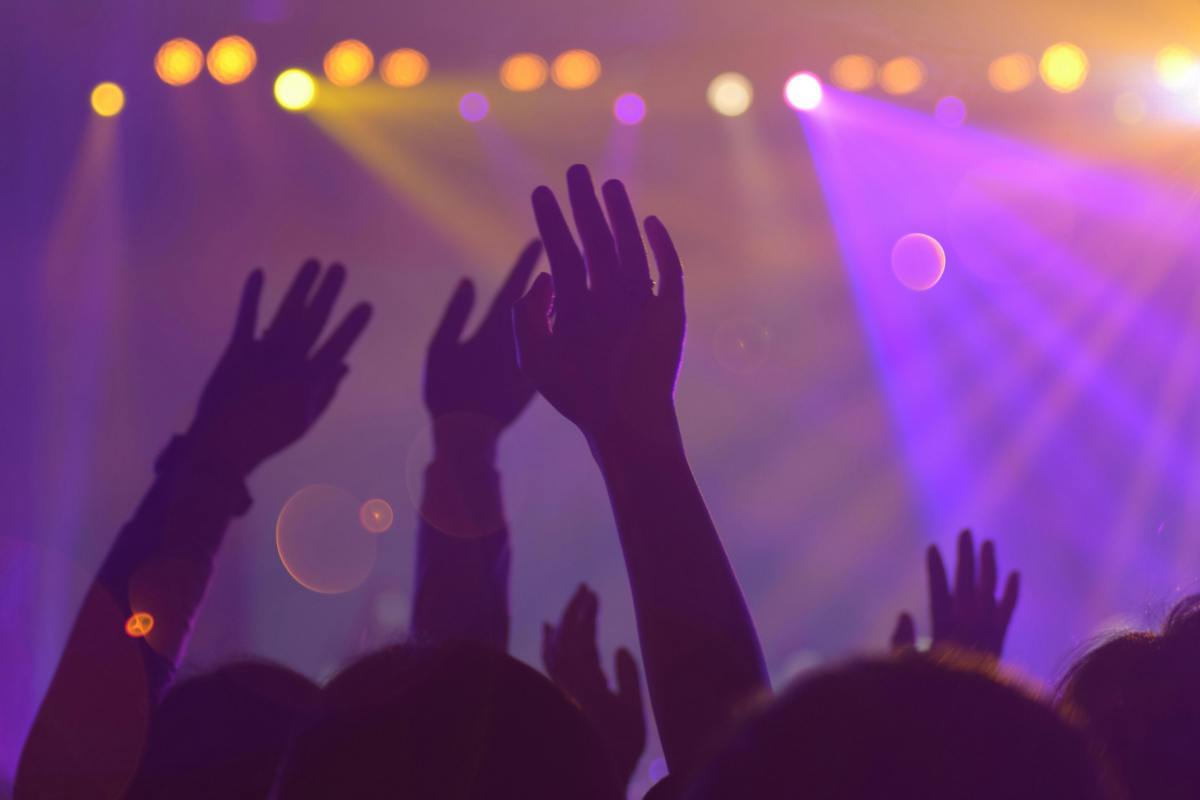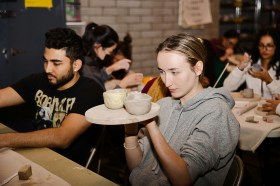For comedians, festival season seems to get bigger every year – and is a chance to showcase your finished work, win new fans and level up in your career. It can also be a draining whirlwind of activity, with long runs of shows, plenty of late nights and opportunities to socialise, plus the stressful prospect of financial loss and the pressure to make the most of the opportunity.
ArtsHub talks to four comedians about how they look after their well-being come festival time.
Jump to:
Gillian Cosgriff
In her award-winning show, Actually, Good, one of the stories Gillian Cosgriff related how securing a prized, but gruelling (think eight shows a week), gig on Harry Potter and the Cursed Child eventually wore down her mental health.
She says the industry is getting better at protecting the mental well-being of its performers, but it’s an ongoing conversation. ‘I think sometimes we pat ourselves on the back too early for acknowledging that [mental ill health] exists. We work in an industry with a mentality of “the show must go on”, where people are rewarded for pushing through and making it work. I know I’ve absolutely lived in that mindset. But we need meaningful and tangible strategies if a person can’t get out of bed that day.’
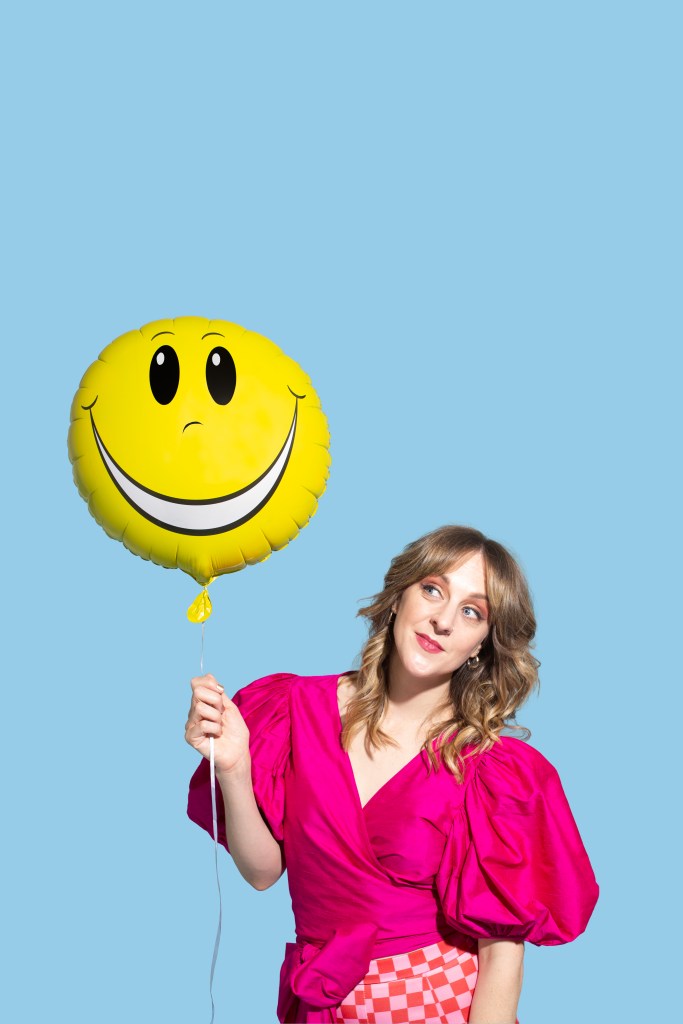
In her early days playing the Melbourne International Comedy Festival (Australia), Cosgriff made the most of her festival pass (which allows performers to watch other acts on the program free of charge), often seeing four or five shows in an evening, sometimes literally sprinting to her venue to be on stage on time.
These days, she’s more circumspect. ‘I approach it more as a marathon than a sprint; Edinburgh [Fringe Festival] is even more like a marathon, but with more nudity and clowning.’ She’s found the key to avoiding burnout: ‘Kind of disgustingly, it’s about moderation. You can’t be all out, and you can’t be all in; you need balance between the two to give you perspective.’
Cosgriff has found that exercising – in her case, doing some pilates or yoga – during festivals is vital, though easy to let slide. She also says that remembering that being part of a comedy festival is a job, despite its unusual hours and demands, helps keep a positive outlook. ‘A friend of mine says, “Take your job seriously, but don’t take yourself seriously”, and that’s been very helpful to me.’
During a festival, comedians can feel it’s necessary to be active on social media to promote their shows. Yet, we’ve been told repeatedly that prolonged social media use is detrimental to our mental health. Does Cosgriff ever take a break from the socials? ‘I want to lie to you and say, “yeah that’s really important”, but I wouldn’t be able to stomach my own hypocrisy. I’m not good at taking a break from social media, certainly not during festival season, where every day you’re trying to find a new angle to say “please buy tickets”… It can feel like everybody is having a great time and getting great reviews and sold-out shows, but that’s because nobody’s posting, “Hey, I only sold 20% of my seats tonight.” We’re all sort of engaged in a collective delusion and that’s OK.’
Damien Power
There’s no bigger date on the Australian comedy calendar than the Melbourne International Comedy Festival Gala. It’s broadcast on television, takes place in front of a huge theatre audience and the stakes can feel sky high to an up-and-comer.
The first time Damien Power was invited to perform at the event, it proved to be a daunting affair. ‘I was so nervous, I could barely talk,’ he recalls. ‘When you walk out to the stage, you walk through a room of the whole industry sitting there. They’re all watching you; it’s crazy. You want to make an impression.’ In later gala performances, he used visualisation to reduce anxiety and focused on maintaining a positive attitude in the lead-up to the event.
Power’s new show, Not So Funny Now Is It? is his 13th hour; he has now spent a full year of his life performing in Melbourne alone. He knows well how hard it can be to maintain a balanced lifestyle during a festival, and has come to value getting enough rest, eating well and taking supplements where necessary.
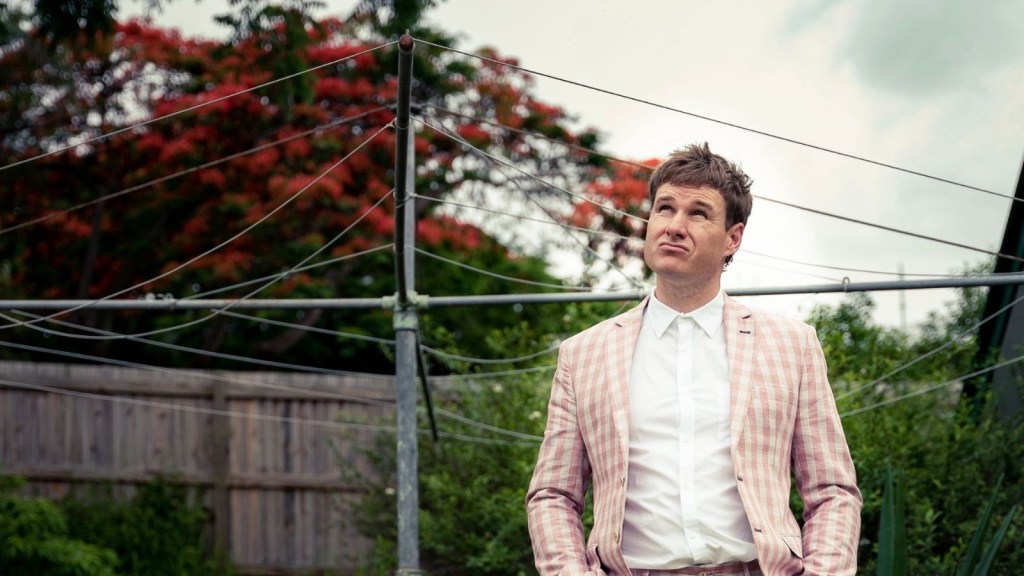
‘In the context of wellness and mental health, I take it pretty seriously. I generally don’t do a lot of extracurricular things, although sometimes you get tied into that because you want to sell tickets, get seen or earn some extra cash.’ Only when he’s fine-tuned his own show will he start going out to see his colleagues in action.
Power describes himself and Dan Rath, the co-hosts of the podcast Neurotic News, as ‘wellness nuts’ who keep themselves informed on the latest thinking around wellness as they try to achieve less anxious lives. ‘We’re quite neurotic people and over-thinkers, so we take our mental health very seriously,’ he says. While they’re sometimes critical of new wellness trends, Power explains they’re ‘ridiculing something we know, as opposed to ridiculing something from a distance’.
Power has also dabbled in more cutting-edge wellness techniques like microdosing magic mushrooms. ‘It’s very much like an antidepressant, though without the downsides. But it’s not something to get too carried away because, like anything, you can have too much of a good thing.’
While his comedy still has a real sense of ambition and some sharp social criticism, he’s also learned to loosen up over the years. ‘My main mantra now is simply to enjoy it, which is actually very difficult, because the sheer pressure and the amount of it is crazy.’
Read: Laughing or crying? Comedians reading our moods in heavy times
Frankie McNair
The 2022 Best Newcomer award-winner at the Melbourne International Comedy Festival, McNair is back this year with her new work, An Intimate Evening with Tabitha Booth, which is featuring at festivals across Australia. She describes it as an ‘off-off-off Broadway show’ starring a Liza Minnelli-type character plotting her Hollywood comeback.
Being relatively new to the scene, McNair feels she doesn’t have all the answers when it comes to preserving your well-being across a festival run. But she has already discovered that festival life and hard living can easily go hand in hand. ‘I’m a bit over six months sober now, but for me, doing the festival circuit has been a big drop-off when I’ve tried to maintain sobriety from alcohol in the past because you really do feel anxious. You’re meeting a lot of people, and you want to connect. I think, though, that the more you do it, the more it feels like a job. It doesn’t feel like that if you don’t take of advantage of this night, it’s never going to happen again.’
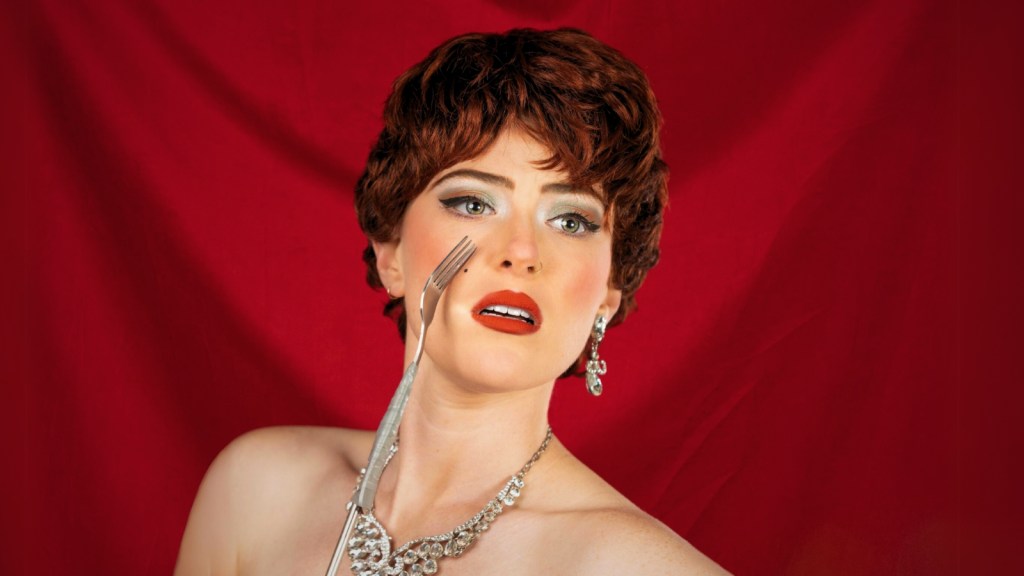
McNair says there’s a well-known phenomenon in the industry where performers who reach the end of a long festival suffer a “glitter crash” and feel depleted. ‘It’s so intense to come down from that and just have the stillness of not having [any shows] booked in. It can be nice if you’re someone who can relax, but I think most comics aren’t good at relaxing. It’s really hard, kind of like a break-up, in that it’s difficult to adjust to sometimes.’
One of the great paradoxes of the comedy industry is that many comedians live with anxiety, but do professionally what’s essentially public speaking, which famously spikes anxiety for many. McNair says the adrenaline of a good gig pushes many comics on. ‘When you do well, you never want to do anything else. But when you have a s**t gig, you think: “What am I doing?”. It takes a certain kind of person to be chasing [success] in this, but it’s also enjoyable too, and I like the community; you really feel like you’re a part of something.’
Luka Muller
When Luka Muller was preparing for his current show 5 Top Smells I Smelled Before, he faced a novel challenge. He wanted to produce a scratch-and-sniff card featuring each of the memory-evoking scents he riffs on in his work – to give away to audience members. ‘That was an incredibly lengthy, difficult and, in the end, sort of an expensive process,’ he explains. After months of research and trial and error in producing the cards himself, Muller eventually found a woman in the US who makes custom scratch-and-sniff stickers and ordered a few thousand for this festival run.
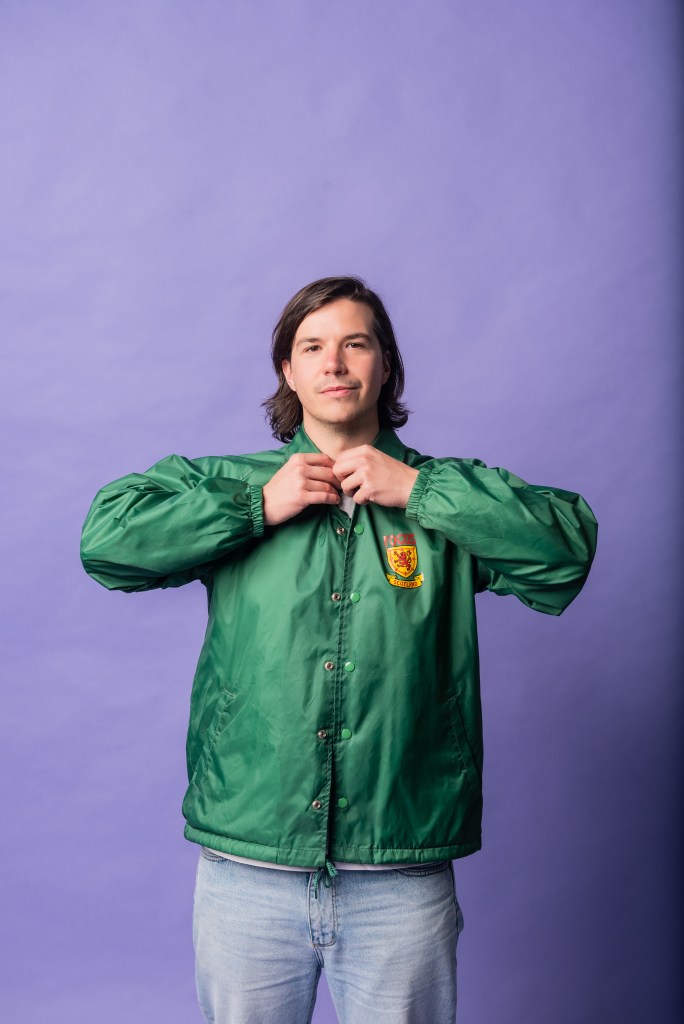
The unusual experience sums up the extensive preparation behind a successful festival run. It isn’t just that a comedian simply has to turn up and be funny for an hour each night – along with writing and rewriting the show, they often have all sorts of administrative and promotional tasks that can fill their days and add to their stress.
Now something of a veteran of the scene, Muller says he has become much better at looking after his health during festival runs over time. ‘The first couple of years, I was just so drained, and it almost takes away from the fun of the experience. You’re always tired and trying to catch up on sleep. I’ve got better at scheduling and making sure I sleep, eat right and do all the good things to make the experience fun and worthwhile.’
When he first travelled to festivals, Muller did split bill shows with some comedian friends rather than dive into a full solo hour. He says choosing this route made life significantly easier. ‘Whenever people ask for advice on doing festivals, the first thing I say is to start by doing a bunch of split shows just to feel out what a festival is like, what’s easy, what’s hard and to find the best way to promote it. It’s so important in those early years to have somebody else who is experiencing all those emotions at the same time.’
